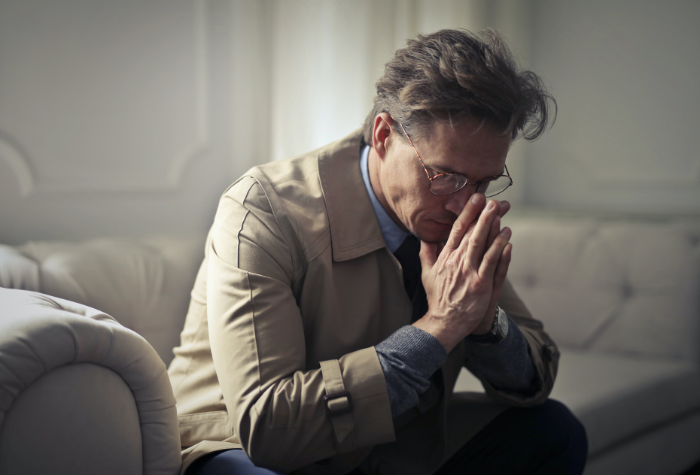When you’re struggling with your mental health, you might wonder if your problems are “real” or “serious enough.” It seems like everyone has a mental illness these days, so how do you know if you really have depression or another mental health condition – or if your problems aren’t actually all that bad?
I Feel Like My Problems Are Not Serious Enough
If you’ve been experiencing mental health issues, you might think ‘Aren’t other people in the world suffering much more than I am?’ In the grand scheme of things, it might seem like other people have “real” problems.
Feelings like these may be especially common at the moment. There are a lot of terrible things happening in our world right now – war, conflict, injustice, mass shootings – but it’s important to remember that no two people can really compare their situations. Each person has their own challenges and those challenges are real and important to them.
It’s Pointless To Compare Your Problems to Someone Else’s
If you feel like your problems aren’t serious enough because other people are suffering more than you, you’re not the only one. This type of thinking has been long ingrained in our society. As a child, a caretaker or other adult in your life may have told you that you had to clear your plate because other children in the world didn’t have enough to eat or that you shouldn’t complain because other people have it worse. It’s a very common idea in many cultures, but it’s one that we need to stop reinforcing.
Think about it this way: When you’re feeling happy, do you ever think, ‘There are people out there who have more money, more success or more friends. They’re allowed to be happy, but I’m not.’?
It sounds a little absurd, doesn’t it? So why should you follow the same logic and think that you aren’t allowed to be unhappy because other people “have it worse”?
Ok, but Am I Actually Depressed?
So now you understand why it doesn’t make much sense to think that you can’t have problems because other people also have problems. But you might still wonder if you’re actually depressed or just experiencing regular old human sadness.
It’s normal to feel sad sometimes, but persistent sadness or other symptoms that affect your day-to-day life might mean you’re depressed. Depression is a mood disorder that is also referred to as clinical depression or major depressive disorder. Depression is common. In the U.S., over 21 million adults experience depression each year.
Depression diagnosis is based on the symptoms you experience and how those symptoms impact your life. You don’t “test positive” for depression. You can’t meet certain parameters that will tell you if you’re “depressed enough.” Questionnaires and other tools can help medical professionals to understand your experiences and determine what treatments will best help you, but keep in mind that if you feel depressed, you are depressed.
There Are Several Different Types of Depression
Not everyone’s experience with depression is the same. Some people experience symptoms constantly, but others only feel depressed intermittently. Some might have intense “down” periods, followed by periods of great happiness and optimism. In fact, there are different kinds of depression, so the differences start there.
Major Depression
If you feel depressed for most days of the week, you might have major depression
Persistent Depressive Disorder
If you have depression that lasts for 2 years or longer, you might have persistent depressive disorder
Bipolar Disorder
Someone with bipolar disorder has “mood episodes that range from extremes of high energy with an ‘up’ mood to low ‘depressive’ periods. When you’re in the low phase, you’ll have the symptoms of major depression”
Seasonal Affective Disorder (SAD)
Many people experience SAD in the fall and winter when the days are shorter and we get less sunlight
Psychotic Depression
Someone with psychotic depression experiences the symptoms of major depression, along with psychotic symptoms like:
- Hallucinations (seeing or hearing things that aren’t there)
- Delusions (false beliefs)
- Paranoia (wrongly believing that others are trying to harm you)
Postpartum Depression
People who have depression in the weeks and months after giving birth may have postpartum depression
Premenstrual Dysphoric Disorder (PMDD)
PMDD can cause symptoms of depression at the start of menstruation
Situational Depression
You might experience depression when dealing with a difficult or emotional life event, like the death of someone close to you, a divorce or unemployment – or any event that is distressing to you personally
Atypical Depression
Atypical depression can come with symptoms that are similar to those of other types of depression, but people with atypical depression can often have temporary mood improvement when they experience a positive event in their life
Treatment Resistant Depression
About a third of people who seek help for depression have treatment resistant depression. They may try many different treatments that don’t end up working for them
Why You Should Get Help Now
Do you still feel that your problems aren’t bad enough at the moment to warrant asking for help? Waiting until things get “worse” won’t help. You might think that because your mental health struggles come and go or because they don’t seem “serious enough,” that you shouldn’t ask for help. But waiting until things are “bad enough” will only make your problems worse. If you wait until you’ve reached a breaking point – when things get so bad that you utterly fall apart – you’ll be making the process of getting better that much harder.
Getting Help for Mental Health in the Western Tidewater Area of Virginia
Still unsure if you’re “depressed enough” to get help? In Franklin, Suffolk and the counties of Isle of Wight and Southampton, Western Tidewater Community Services Board is your local authority on mental health, developmental disabilities and substance abuse.
Our team is professional, compassionate and dedicated to helping our community members in need. We are here to talk with you and connect you with treatments or resources that can help, anytime you need us.
Make an appointment for same-day access online or call us at 757-758-5106.
We’re your community of hope and we are here to help.
Let’s move forward, together.






